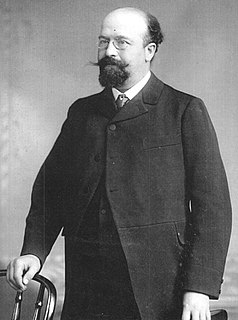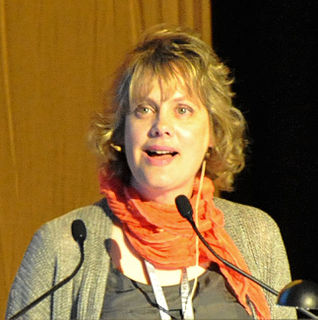A Quote by Rebecca Solnit
Think of civil society and the state as joined in a marriage of necessity. You already know who the wife is, the one who is supposed to love, cherish and obey: that's civil society. Think of the state as the domineering husband who expects to have a monopoly on power, on violence, on planning and policymaking.
Related Quotes
[T]here are, at bottom, basically two ways to order social affairs, Coercively, through the mechanisms of the state - what we can call political society. And voluntarily, through the private interaction of individuals and associations - what we can call civil society. ... In a civil society, you make the decision. In a political society, someone else does. ... Civil society is based on reason, eloquence, and persuasion, which is to say voluntarism. Political society, on the other hand, is based on force.
I think it's alright if the government wants to say, in the state of Massachusetts, in the state of New York, in the state of California, that civil ceremonies should be accepted, I think that should be fine. I don't think that even those states that believe in civil marriages between homosexuals or ordained in a church should perform civil ceremonies.
It is unfortunately none too well understood that, just as the State has no money of its own, so it has no power of its own. All the power it has is what society gives it, plus what it confiscates from time to time on one pretext or another, there is no other source from which State power can be drawn. Therefore every assumption of State power, whether by gift or seizure leaves society with so much less power; there is never, nor can be, any strengthening of State power without a corresponding and roughly equivalent depletion of social power.
The essence of the modern state is that the universal be bound up with the complete freedom of its particular members and with private well-being, that thus the interests of family and civil society must concentrate themselves on the state. It is only when both these moments subsist in their strength that the state can be regarded as articulated and genuinely organized.
Before any man can be considered as a member of Civil Society, he must be considered as a subject of the Governour of the Universe: And if a member of Civil Society, do it with a saving of his allegiance to the Universal Sovereign. We maintain therefore that in matters of Religion, no man's right is abridged by the institution of Civil Society and that Religion is wholly exempt from its cognizance.
Briefly, the State is that organization in society which attempts to maintain a monopoly of the use of force and violence in a given territorial area; in particular, it is the only organization in society that obtains its revenue not by voluntary contribution or payment for services rendered but by coercion.
In fact all the Islamists, that is the reformists not the Salafis, now they all say that they want a civil state, a civil state with Islamic reference points. They are not talking about an Islamic state, or sharia in the way this was once understood in the fight against the colonisers, or just afterwards in the 70's, 80's and 90's.
Ages of experience have taught us that the commitment of a husband and a wife to love and to serve one another promotes the welfare of children and the stability of society. Marriage cannot be cut off from its cultural, religious, and natural roots without weakening this good influence on society. Government, by recognizing and protecting marriage, serves the interests of all.





































